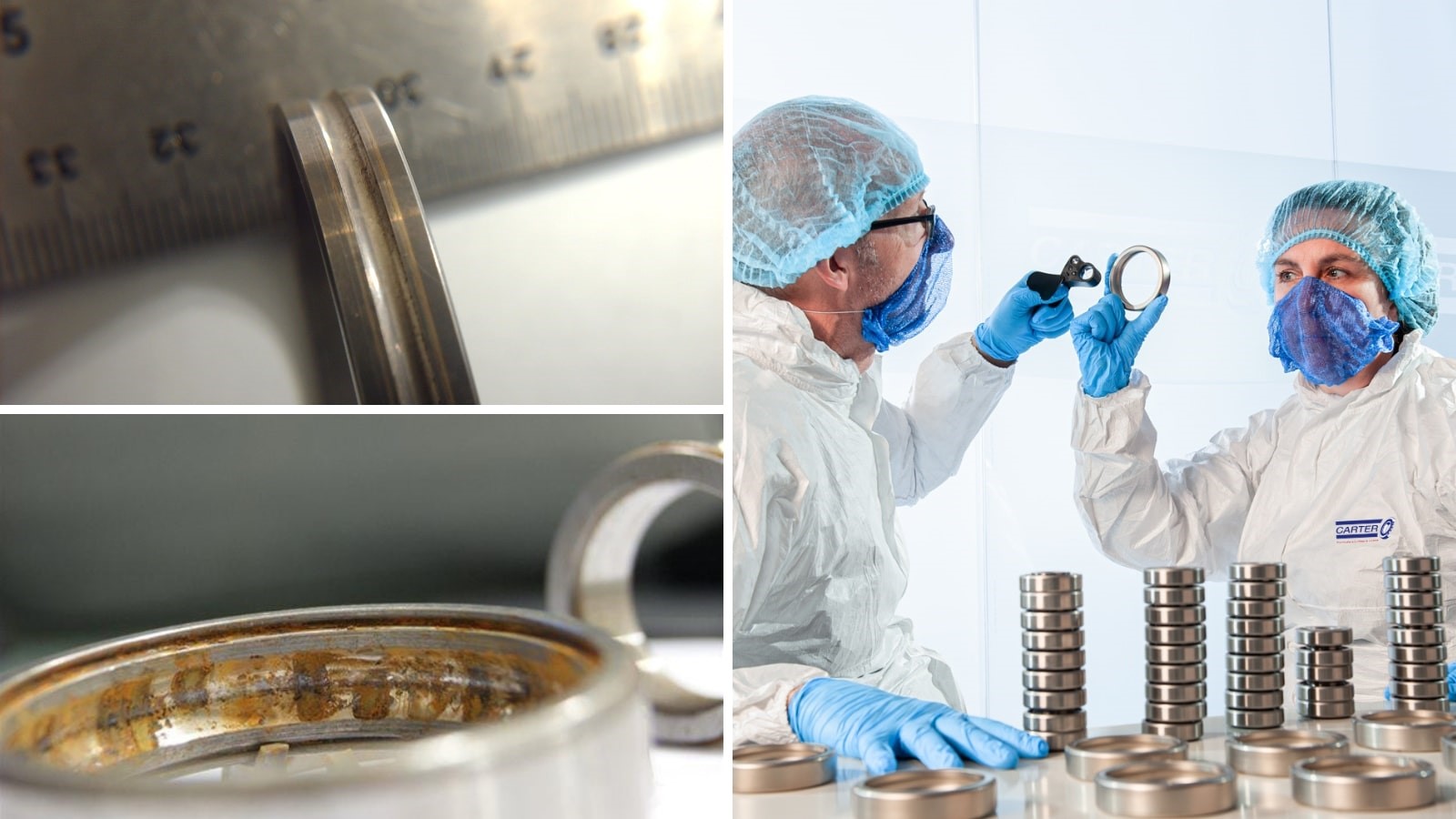The transition to ‘smarter’ technologies is gathering pace across all sectors of industry and wherever motion control applications require smooth and efficient movement ‘smart’ bearings have emerged as a revolutionary innovation. So what are smart bearings?
Thanks to embedded sensors, these bearings enable real-time monitoring of critical parameters, such as; temperature, vibration and load, offering unprecedented insights into operational performance. However, as advanced and beneficial smart bearings are, they are not immune to challenges making bearing failure analysis even more crucial than ever.
Failure of bearings, whether traditional or smart, can lead to expensive downtime, equipment damage, compromised safety and in extreme cases, could result in catastrophic system failure. Identifying the root causes of these failures is essential to prevent recurrence and optimise system reliability. Around 70% of all bearing failures are due to poor fitting, improper lubrication, contamination, misalignment, or overloading. These problems may seem straightforward to resolve. However, without expert analysis they are often undiagnosed (or ignored) until it’s too late.
While smart bearings provide invaluable additional data, they require a human touch to translate insights into action helping to fully exploit their benefits. This is where precision bearing and tooling specialists Carter Manufacturing says it can make a big difference by offering a meticulous approach to uncovering the exact reasons behind bearing issues. By leveraging state-of-the-art diagnostic tools combined with decades of experience, the Carter team provides comprehensive reports and actionable recommendations to extend bearing life. Moreover, bearing failure analysis plays a complementary role to smart technologies. The data generated by smart bearings, such as irregular vibration patterns or thermal anomalies can point to potential failures, although diagnosing these indicators requires specialised knowledge.
The importance of timely and accurate assessment of bearing failure is critical in industries where bearing reliability underpins system security. Carter says that with its support, businesses can confidently address operational challenges and optimise maintenance schedules, whilst protecting their investments, even in the age of smart technology.
It is inevitable that smart bearings technology will continue to grow with recent market research suggesting that the global smart bearings market is projected to reach $8 billion by 2026. This means demand for proven and robust failure analysis will only increase.



